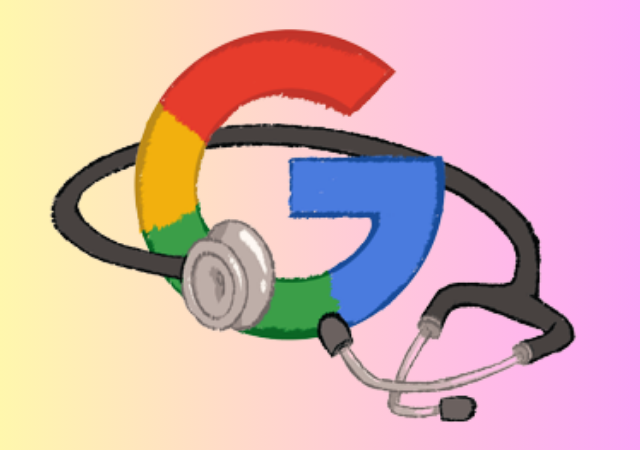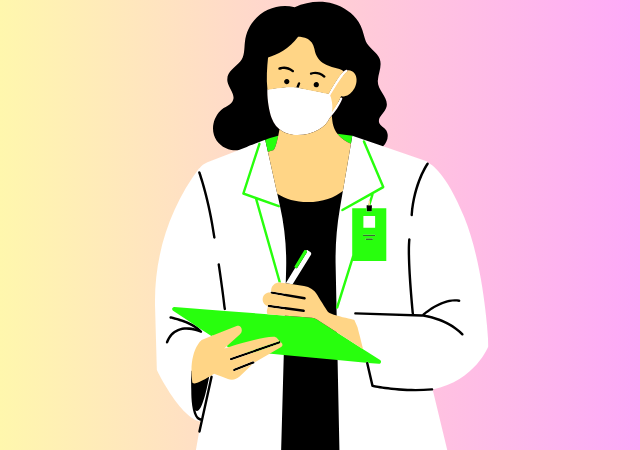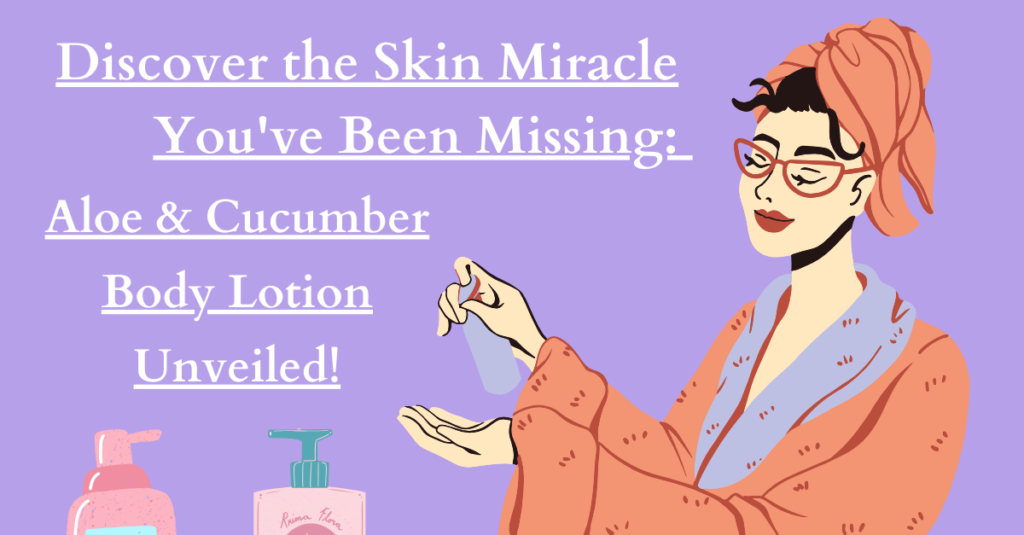Who Should You Consult with First, a Doctor or Google?
Introduction
In the Information Age, we have unprecedented access to a vast sea of knowledge at our fingertips. The internet, in particular, has become an invaluable tool for seeking information about our health. Gone are the days when we solely relied on doctors and medical professionals for answers to our health concerns. Today, we often turn to search engines like Google for a quick diagnosis or to better understand our symptoms. But as we embrace the digital age, an important question arises: Who should you consult with first, a doctor or Google?
This question sparks a debate that highlights the evolving relationship between healthcare and technology. On one side, we have the convenience, speed, and accessibility of online search engines, while on the other, the traditional expertise, wisdom, and personalized care offered by medical professionals. In this article, we will delve deep into the pros and cons of consulting Google for health-related information and weigh them against the indispensable role of a medical professional in maintaining your well-being.
The Pros and Cons of Consulting Google

Accessibility and Convenience
One of the most significant advantages of turning to Google for health information is its unparalleled accessibility and convenience. Whether it’s a lingering cough at 2 a.m. or a sudden rash on a weekend, the internet is always there to provide immediate answers. This convenience can be a lifeline, especially when you’re faced with a health issue outside regular office hours.
An Abundance of Health Information
Google, often dubbed “Dr. Google,” houses an astounding amount of health-related information. From medical journals and reputable health websites to user-generated content and forums, you can find a wide range of insights on almost any health topic. This wealth of information empowers individuals to become more informed about their health and take an active role in their well-being.
The Dangers of Misinformation
However, this vast pool of information is a double-edged sword. Misinformation and inaccuracies are rife on the internet, and it can be challenging to discern reliable sources from unreliable ones. Acting on incorrect information can lead to misguided self-diagnoses, unnecessary panic, or even harmful self-treatment. It’s essential to exercise caution and critically evaluate the sources you consult.
The Risk of Self-Diagnosis
Another concern associated with relying solely on Google is the temptation to self-diagnose. It’s easy to search for symptoms and jump to conclusions, convinced that you’ve identified the cause of your discomfort. However, self-diagnosis often leads to unnecessary stress, anxiety, and potentially incorrect assumptions about your health. It’s crucial to remember that only a qualified medical professional can provide a definitive diagnosis.
Anxiety and Stress Caused by Online Searches
The sheer volume of health-related information available online can sometimes do more harm than good. A simple search for a headache could lead to a rabbit hole of terrifying possibilities, leaving you convinced that you have a severe medical condition. This anxiety-inducing process is commonly referred to as “cyberchondria” and underscores the need for caution when consulting Dr. Google.
The Role of a Medical Professional

The Importance of Medical Expertise
In contrast to the vast sea of information on the internet, medical professionals bring expertise, experience, and rigorous training to the table. They possess the knowledge required to accurately diagnose and treat a wide range of conditions, many of which might elude even the most diligent online researcher. Consulting a doctor means tapping into a wealth of knowledge accumulated through years of education and practice.
Establishing a Doctor-Patient Relationship
Beyond their medical expertise, doctors offer something equally valuable—a doctor-patient relationship. This connection is built on trust, and it’s a cornerstone of effective healthcare. Your doctor gets to know you, your medical history, and your unique needs, allowing for personalized care and treatment plans tailored to your specific circumstances.
Accurate Diagnosis and Treatment
One of the fundamental differences between consulting a doctor and relying on Google is the accuracy of diagnosis and treatment. Medical professionals use their expertise, physical examinations, and diagnostic tests to provide accurate assessments of your health. This level of precision is impossible to achieve through online searches and self-diagnosis.
Personalized Healthcare Guidance
Medical professionals don’t just provide diagnoses and treatments; they also offer guidance and support tailored to your health journey. Whether it’s managing a chronic condition, making lifestyle changes, or navigating complex treatment options, your doctor is there to provide personalized advice and ensure your well-being.
The Limits of Online Information
It’s essential to recognize that the internet has its limits when it comes to healthcare. While it can provide general information and insights, it cannot replace the expertise and judgment of a medical professional. Online information should be used as a supplement to, rather than a replacement for, healthcare consultations.
When Should You Consult Google?
General Health Information
There are times when turning to Google for general health information can be beneficial. If you want to learn about a particular medical condition, understand common symptoms, or gather background information before a doctor’s appointment, the internet can be a valuable resource.
Understanding Common Symptoms
When you experience mild and common symptoms, such as a minor cold or seasonal allergies, consulting Google can help you better understand what you might be dealing with. However, it’s crucial not to jump to conclusions or engage in self-diagnosis.
Lifestyle and Wellness Tips
The internet can also be a useful tool for learning about general wellness practices, healthy lifestyle choices, and preventive measures. From nutrition and exercise to stress management and sleep hygiene, there is a wealth of wellness information available online.
Gathering Questions for Your Doctor
Before a doctor’s appointment, it’s often helpful to jot down questions or concerns you have about your health. Conducting preliminary research can help you formulate informed questions and make the most of your time with your healthcare provider.
When Should You Consult a Doctor First?
Emergencies and Urgent Medical Issues
In cases of medical emergencies or urgent health issues, there is no substitute for immediate medical attention. Delaying a visit to the doctor in such situations can have severe consequences. Always prioritize seeking medical help when time is of the essence.
Persistent or Severe Symptoms
If you experience persistent or severe symptoms, it’s advisable to consult a doctor without delay. These symptoms may indicate underlying medical conditions that require professional assessment and treatment.
Chronic Conditions and Ongoing Treatment
For individuals with chronic conditions or those requiring ongoing medical treatment, regular consultations with a healthcare provider are essential. Doctors monitor your condition, adjust treatment plans as needed, and provide guidance to improve your quality of life.
Medication and Treatment Advice
When it comes to medications or treatment options, it’s crucial to consult a medical professional. They can prescribe appropriate medications, adjust dosages, and ensure your treatment aligns with your specific needs and health status.
Finding a Balance
Integrating Online Research with Professional Guidance
In the quest to make informed healthcare decisions, finding a balance between online research and professional guidance is key. Use the internet to educate yourself, gather information, and formulate questions for your doctor. However, always consult a medical professional for accurate diagnosis and treatment recommendations.
The Role of Telemedicine
The digital age has also ushered in innovations like telemedicine, which allows you to consult with healthcare providers remotely. Telemedicine bridges the gap between online information and professional guidance, offering a middle ground for healthcare seekers.
Building a Healthcare Support Network
Beyond doctors and the internet, consider building a healthcare support network. This might include specialists, therapists, nutritionists, and other professionals who can contribute to your holistic well-being.
Staying Informed Without Causing Anxiety
Lastly, strive to stay informed about your health without causing undue anxiety. Recognize the limitations of online information, and don’t let self-diagnosis or cyberchondria take hold. Trust your healthcare provider to guide you on your journey to better health.
Conclusion
In the age of information, the question of whether to consult a doctor or Google first is a vital one. The answer lies in finding a harmonious balance between the two. While the internet can be a valuable tool for general knowledge and preliminary information gathering, it can never replace the expertise, personalized care, and accuracy provided by medical professionals.
The relationship between doctors and the internet is dynamic and ever-evolving. As healthcare continues to integrate technology and information accessibility, our ability to make informed healthcare decisions will also evolve. The key is to approach healthcare decisions with caution, to seek professional guidance when necessary, and to use the wealth of online information wisely as a supplement to, not a replacement for, expert healthcare advice. Ultimately, your health is too important to leave to chance, so choose wisely when deciding whether to consult a doctor or Dr. Google.

My name is Rohit Vagh and I’m a content writer specializing in fashion and lifestyle. I have three years of experience in this field and have written various articles. My writing style is creative and engaging, and I strive to create content that resonates with my readers. I have a deep passion for fashion and am constantly researching the latest trends and styles to make sure my readers are up to date. I’m excited to continue my career in blogging, and I’m always looking for new opportunities in the fashion and lifestyle space.





